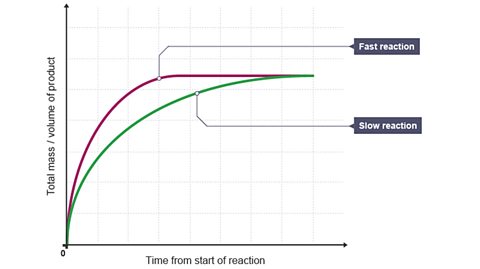This article was first published in April 2025.
Your GCSE Science exams are fast approaching, and as you get in the revision groove, you may feel like you need a bit of a helping hand.
Bitesize has plenty of science revision guides and exam-style questions you can practise ahead of your exams! We've also got some top tips, tricks and techniques to help you smash those science revision sessions, and help you feel more confident heading into your exams. Scroll down to read our guide.

Tip one: Get experimental!
Knowing about practical experiments is an important part of your GCSE Science exams, as at least 15% of the marks on all science papers will relate to required practicals, so make sure you make them a part of your revision. Why not start by watching this video about how to plan an experiment?
It's a good idea to learn the following definitions for the different variables of an experiment and make sure you can apply them:
- Independent variable – is the quantity you are changing in the experiment.
- Dependent variable – is the quantity that you are measuring.
- Control variables – need to be kept the same for each experiment as they can also affect the outcome.
If you are asked to write a method for a practical, use bullet points to give a series of instructions that are easy and logical to follow. Imagine you are going to give the steps to a year 7 student to carry out the experiment – keep it clear. Remember to say what equipment to use, even if you think it’s obvious eg a ruler to measure a distance.
Tip two: Uncle Mouse Talks Rubbish (a.k.a Use Mnemonics To Remember!)
A mnemonic is a learning technique using word patterns or short poems that can help you to retain information or retrieve it from your memory. Mnemonics are a great tool to use in your science exam. Some example are:
- Richard Of York Gave Battle In Vain (Red, Orange, Yellow, Green, Blue, Indigo, Violet… order of the visible spectrum).
- Kids Prefer Candy Over Fresh Green Salad (Kingdom, Phylum, Class, Order, Family, Genus, Species… order for classification).
- OILRIG (Oxidation Is Loss, Reduction Is Gain… of electrons).
Why not try making your own revision mnemonic? Pick something that you like, such as football, and get creative!


Tip three: Use active recall techniques
It can often be difficult to recall scientific facts and figures when you are under pressure in an exam, so make sure you set aside plenty of sessions in your revision timetable dedicated to active recall. Making flashcards and practising exam-style questions are good ways to do this.
Create your own flashcards for key terms, put the question on one side and the answer on the back – then get family members or friends to test you! It's important to make sure you are using your flashcards correctly. If you just copy lots of notes from your textbooks, that won't be as helpful. So make sure you include between five and ten key points, make your flashcards colourful using highlighters, and use both sides of each card.
You can find some more memory hacks from our experts in this handy guide.


Tip four: Describing data
This tip is important when you are describing data when evaluating a practical experiment. There are a few things that are expected of you in order to gain maximum marks, so taking the time to learn about what is expected when describing data will help when it comes to your exams.
- Get trending – If you are asked to describe the trend of a graph, a good starting point is saying whether as the x value increases the y value increases (or decreases).
- Is it proportional? – If the graph is a straight line, through the origin (or 0,0) then the x and y values are directly proportional. You can check to see if data is directly proportional by seeing if when one value is doubled the corresponding value is also doubled. Show this as a calculation using the data given.
- Data types – Data that gives a straight line is linear, a curve is non-linear. It's important to understand how to carry out each stage of the investigation, including evaluating data.


Tip five: Get the most out of your exam paper
Our last tip is more for exam day, rather than revision, but knowing the ways you can maximise the marks on your GCSE Science paper could be the difference between one grade and the next – so take note of these tips as they could help you gain those key marks to boost your grade.
Show your workings – Here's a brilliant tip for your science paper. Always show any working out in your calculations! If you make a mistake you can still be awarded method marks this way. If you are given an equation there is always a mark for just substituting the correct values into the equation, so do this first before re-arranging the equation, where you could make a mistake.
Understand the mark scheme – Use the marks for each question to structure your answer and point to clues… if it is a calculation with 4 or 5 marks there is probably a unit that needs to be converted or perhaps you have been asked to give your answer to a set number of decimal places or significant figures. If it is a written answer then try to make sure that you have made as many distinct points as there are marks. You can also use the amount of marks for each question as a guide as to how long you spend on it – you should spend around one minute per mark.
Command words are key – Use the command word in the question to make sure you have answered it correctly. If a question says explain, you must say what happens AND why, if it says state you can just say what happens. Answering the question in the correct way will help you to boost your marks. If you have ten minutes spare, you could listen to our GCSE Science podcast on command words.
Don't give up! – Questions don’t necessarily start easy and get difficult in your science exam paper, they are in no set order. Just because one question is tough, you may be able to answer a later one! So don't get too worried if you can't answer one of the questions earlier on in the exam paper, just give it your best go. Move onto the next question and come back to any unanswered questions once you've finished the paper, if you have time.
There's loads more tips from Bitesize Study Support about revision and guides to help you during your exams, so why not check them out?


If you need support
You should always tell someone about the things you’re worried about. You can tell a friend, parent, guardian, teacher, or another trusted adult. If you're struggling with your mental health, going to your GP can be a good place to start to find help. Your GP can let you know what support is available to you, suggest different types of treatment and offer regular check-ups to see how you’re doing.
If you’re in need of in-the-moment support you can contact Childline, where you can speak to a counsellor. Their lines are open 24 hours a day, 7 days a week.
There are more links to helpful organisations on BBC Action Line.

Revision: How to stay motivated
Just how do you stay motivated whilst revising?

How do I get started with revision?
How to get started with your revision.

Revision: How to get organised
Advice on how to get organised with your revision.
